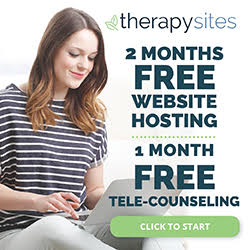As a graduate student (or professional) in psychology, like myself, you will likely find yourself juggling many professional obligations and responsibilities. In addition to your personal life, there is certainly no shortage of directions we are pulled in. And I suspect this great challenge is neither limited to the life of a graduate student nor to the life of anyone in the field of psychology.
We all have obligations, responsibilities, and personal endeavors, as well as a social and private life. Most of us have hobbies as well. Although I am engrossed in psychology and psychotherapy, I enjoy studying the field of modern technology.
I specifically enjoy software and websites or apps that aid, many of which are directed toward making people’s lives easier. It is to this end that my professional life and my personal hobby connect; where technology and psychology meet to provide people with the same goal.
Below are three technology products, apps and websites that you can use on a daily basis to stay organized and stress-free. Plus, most of them are free. These products allow you to organize and automate where necessary in ways that your paper-and-pen cannot.
1. Google Calendar
When I launch my web browser, I have it set to automatically open three tabs: Google Calendar, Remember The Milk, and Gmail.
Google Calendar is the first thing I look at when I plan my day and my week. On it you’ll find the various meetings, therapy clients, classes and, dare I say, free time. For people that check their email first thing in the morning, Google Calendar also has a function that emails you a reminder of your daily schedule.
Google Calendar also allows you to share your calendar with other people like your employer, co-workers or your significant other. If you work in a private practice, you can block off hours on your calendar and have your receptionist book your clients during those hours.*
For those of you that have your electronic calendar already set up, I still recommend utilizing Google Calendar. Say, for example, you primarily use Microsoft Outlook but wish to synchronize your calendar with your iPhone or Android. If you figure out how to (finally) synchronize it, you may have some glitches. By synchronizing all your calendars with Google Calendar, you bypass many of these synchronization problems.
Other Features of Google Calendar:
- Color coded events to help you separate events by their type: For example, separating professional events from personal events.
- Multiple calendars that can have different settings
- Daily, Weekly, and Monthly Views
- The ability to create events directly from your Gmail account
- Integrations with other software products (e.g. Remember The Milk, which I review as #3 in this article) to help you stay even more organized.
2. Evernote
Evernote is a helpful tool for keeping track of ideas, writing articles or even keeping track of class or meeting notes. With a quick Google search, you’ll find that many writers and creatives utilize Evernote for their work. However, Evernote can also be particularly useful in a clinical and academic setting.
For example, during my weekly supervision meetings, I like to jot down important points with Evernote open. It is also very helpful for tracking all of the ideas thrown around during dissertation meetings.
Want to keep track of class notes or research articles? Use Evernote. You can even keep track of Psychotherapy process notes if you are so inclined.
As for writing this article? You guessed it – I used Evernote.
Evernote’s Full Screen mode on my computer made it easy for me to stay focused and write. You can organize all of these notes into notebooks and write multiple notes in each. When you’re finished with the note, press the sync button so that you could read or complete the note across all of your devices.
Other Features of Evernote:
- Reminders to finish or complete notes
- Ability to share your notes with others
- Work chat that you can use while you work
- Various tags and notebooks to organize all your notes
- Evernote Clipper, which allows you to “clip”, or store, interesting articles and websites.
- The paid version of Evernote, Evernote Premium, allows you to create slideshows and presentations, annotate PDFs, and have more storage space in the cloud.
- Add-ons and plug-ins are also available to synchronize Evernote with other software products.
3. Remember The Milk
This leads me to the second tab that automatically opens when I launch my web browser: Remember The Milk.
Remember The Milk is a web-based to-do-list application with an app for your smart-phone so that you can create items on-the-go. While Google Calendar and Evernote allow you to stay organized, Remember The Milk allows you to get things done and relieve yourself of the stress of having disorganized tasks hanging over your head.
After I became tired of constantly emailing myself reminders, I began searching for an internet-based to-do-list manager. I eventually came across the excellent reviews of Remember The Milk. Remember The Milk has proven to be particularly useful in helping me to remember tasks and activities for projects that require work in specific locations (eg. confidential client work that must be done only at the clinic).
You also have the option to print off a hard copy of your to-do list if you enjoy physically checking off completed tasks throughout the day.
Other features of Remember The Milk:
- Projects to categorize your tasks (and your grocery list)
- Tags to organize your work across various projects
- Shows your tasks for Today, Tomorrow and This Week
- Due dates for your projects and tasks
- Sharing of projects with coworkers
- Reminders at specific times
- Gmail and Google Calendar integration to view your daily tasks while looking at your schedule
- Evernote integration to add to or create to-do lists via Evernote
- SMS, email, smart phone, and desktop task reminders
* REMEMBER: When using software products such as Google Calendar, Remember The Milk, and Evernote to keep track of client-related data, make sure to review their confidentiality rules when de-identifying sensitive material. Essentially, you are “borrowing” their cloud storage for your benefit, so most software companies have access to your data.
Do you have any more tips on how you use these products to help you stay stress-free and productive? Are there any other software products that help you stay organized day-to-day? Share in the comments below or connect with me on twitter, @AviJGordon.


